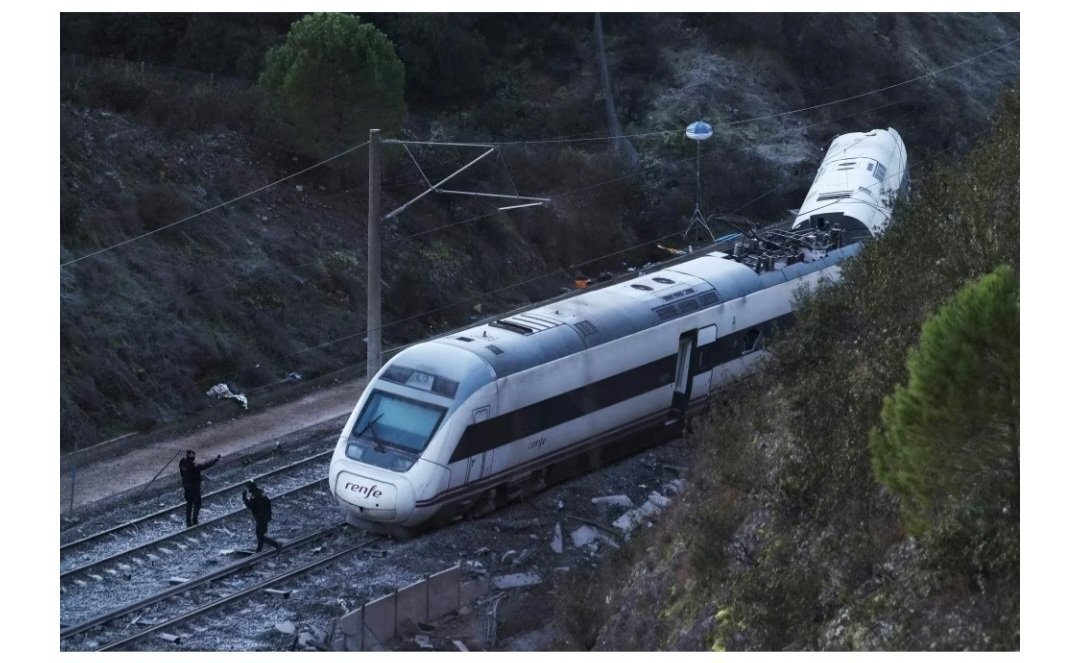
Sparta, NJ, October 2, 2024 – Harold Daggett, the president of the International Longshoremen’s Association (ILA), has garnered attention not only for his bold promise to “cripple” the U.S. economy if dockworkers’ demands aren’t met but also for his extravagant lifestyle. Exclusive drone photos obtained by The Post reveal the union leader’s sprawling 7,136-square-foot mansion and luxury car collection, raising questions about his portrayal as a champion of blue-collar workers.
Daggett’s Tudor-style mansion, located on a 10-acre estate in the affluent town of Sparta, New Jersey, boasts a five-car garage, a unique amoeba-shaped pool, and an outdoor entertainment area complete with a bar and massive brick pizza oven. A Bentley convertible, parked outside the home, adds to the image of wealth. While five-bedroom homes in the area can fetch as much as $6 million, Daggett’s estate was previously listed at $3.1 million before being taken off the market.

This revelation comes amid a historic strike led by the ILA, shutting down 36 ports from Maine to Texas. Over 45,000 dockworkers have walked off the job in protest of stalled contract negotiations, marking the first strike of its kind since 1977. The strike is causing disruptions across the U.S. economy, with experts warning that prolonged delays could result in shortages, supply chain snarls, and higher prices.
Daggett’s Wealth and Public Persona
Daggett, who earns a combined $900,000 annually from his positions within the ILA, has long cultivated an image as a staunch advocate for dockworkers. Known for his blunt rhetoric and dramatic public gestures, Daggett recently told reporters, “I’ll cripple you. I will cripple you, and you have no idea what that means,” in reference to the ongoing labor dispute.

However, his lavish lifestyle, including a 76-foot yacht he once owned, has drawn criticism from some corners, particularly as dockworkers push for higher wages and job security. Daggett has also faced allegations of mafia ties, though no charges have been brought against him.
Dockworkers Strike Hits U.S. Ports
The dockworkers’ strike comes after months of negotiations between the ILA and the United States Maritime Alliance (USMX), the body representing port employers. The core issues in the dispute center on automation and wages. The union opposes the introduction of automation at ports, which it argues will cost thousands of jobs. In addition, the ILA is demanding a 77% wage increase over six years, a proposal that employers have balked at.
On Tuesday, workers took to picket lines, holding signs demanding fair pay and a ban on automation. Experts say that the strike, if it continues for weeks, could disrupt the supply of perishable goods, including items like bananas. Other fruits and vegetables are less likely to be affected, as most are domestically grown at this time of year, according to Alan Siger, president of the Produce Distributors Association. Meanwhile, many retailers anticipated the strike and stocked up on goods in advance to cushion the impact.

The strike is currently costing the U.S. economy an estimated $3 billion per day, a figure that could rise if no resolution is reached soon.
A Stalemate in Negotiations
Both the ILA and USMX have shown little movement from their original positions. The USMX has offered a 50% wage increase over the six-year contract, but the union has stuck with its demand for a 77% increase. Some comments from union leadership briefly suggested a compromise at 61.5%, though the union later retracted this, signaling an unwillingness to back down.
In a statement released Tuesday, the USMX expressed frustration, saying, “We have demonstrated a commitment to doing our part to end the completely avoidable ILA strike.” The alliance highlighted that its pay offer exceeds settlements reached by other unions in recent months. “We look forward to hearing from the union about how we can return to the table and actually bargain, which is the only way to reach a resolution,” the USMX added.
The Biden administration has also intervened, with Acting Labor Secretary Julie Su urging both sides to return to the bargaining table. However, with neither party willing to make significant concessions, the path forward remains uncertain.

Economic Fallout Looms
As the strike drags on, concerns about its broader economic impact grow. Supply chains, already strained by global events, face further disruptions, and experts warn that extended delays could lead to higher prices for consumers, particularly in sectors reliant on imports.
Despite the economic pressure, Daggett remains resolute, insisting that the union’s demands are necessary to protect jobs and secure fair wages for workers. Whether Daggett’s luxurious lifestyle will dampen his standing among union members or fuel greater public scrutiny of labor leadership remains to be seen.
For now, both sides appear entrenched, and the U.S. economy hangs in the balance.
Credit: New York Post








